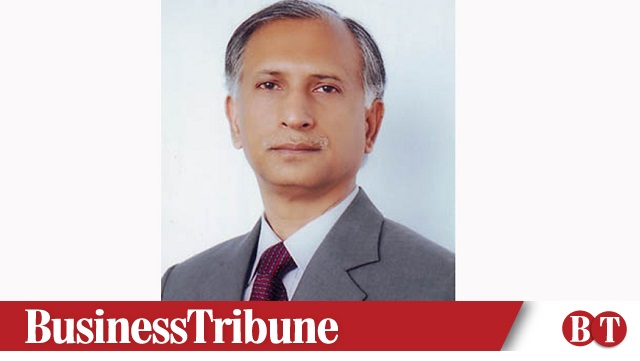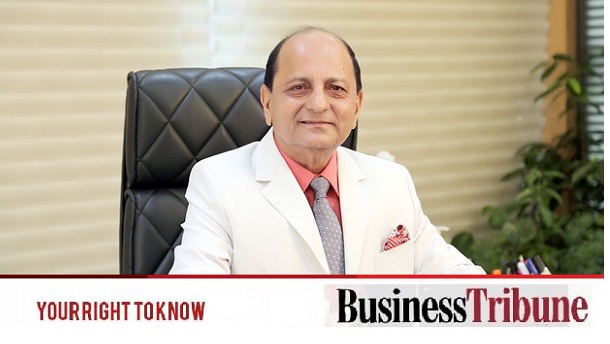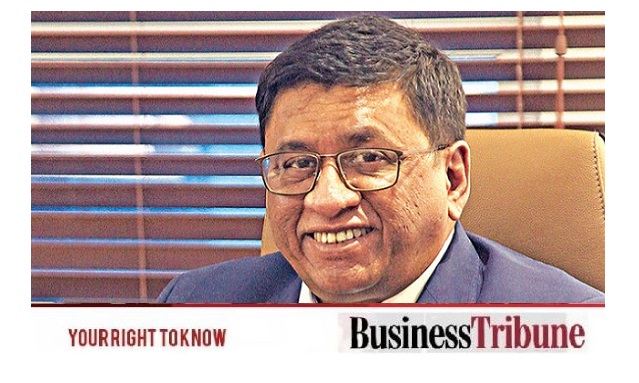Journalists are soldiers of truth: Dr Arefin Siddique
Published:
2021-06-07 07:23:05 BdST
Update:
2026-02-19 04:49:08 BdST

The expert said journalists should also remain aware of their professionalism and professional ethics. “Journalism is a tough and hazardous profession. Journalists are the soldiers of truth and they should be ready to even sacrifice their lives for the sake of truth. If journalists have this commitment and zeal no one can obstruct journalism. That’s why we need professional journalists who will never compromise when it comes to the truth,” he gave the statement in respect to the sensitivity of this issue.
The expert asked journalists to be conscious of their professionalism and professional ethics
As the media has changed rapidly with the expansion of technology and social media, a media expert says the future of journalism depends on how journalists are trying to catch up with the changes and know their audiences.
Former vice-chancellor of Dhaka University (DU) and chairman of the board of directors of Bangladesh Sangbad Sangstha (BSS), the state-run news agency. Professor AMS Arefin Siddique said that journalists must face the challenges of the 21st century with their professional spirit and the basic values of journalism, said with an interview
He also suggested the universities offering journalism and mass communication courses to upgrade their syllabuses and curriculum so that the students can cope with the changing media environment. “Adaptation is important,” he advised.
Authenticity vital
Arefin, also a former teacher of DU’s Mass Communication and Journalism department commented, presenting facts and authentic information immediately is now the main challenge for the mass media.
“The media has to be faster in collecting information and processing it by its desk and making it presentable for readers and viewers as social media circulates information within seconds,” he made the statement from his observation.
Arefin further said social media can disseminate content directly but the mass media cannot do that without cross checking it. “As the crude oil is refined in a refinery, crude information must be refined by the news desk of mass media for upholding the credibility and authenticity,” he added in this regard.
He stated noting that social media creates sensation with unverified information, but mass media cannot confuse people using the social media information. “Social media can circulate information faster, but it can’t outsmart the mass media only because of authenticity. Journalists must follow the basics of journalism to overcome the challenges of social media and technology.”
Training must
Arefin said the number of online portals continues to increase in the country so does the number of unskilled journalists. “It’s necessary to train those unskilled journalists so that they can perform their professional duties with accuracy and objectivity.”
Describing journalism as a discipline of verification where every skill matters, the former VC of Dhaka University said journalists always work for finding and presenting facts.
“Despite having various limitations, I think most of our mainstream media outlets are playing their due role nicely. But we still have serious limitations about using the technology in journalism. We also lack enough, skilled, trained and experienced journalists to rightly verify information. So, we need to focus on training and education on journalism and in-house training for the media workers,” Arefin commented in this matter.
He said once there was only one state-owned television channel and radio station in Bangladesh. “Now there’re so many private TV and radio channels alongside many newspapers and online portals. “But most of our universities have prepared their courses and curriculum considering the challenges and reality in the 20th century. We need to improve those by including many new things,” he further added.
Arefin said the curriculum of Dhaka University’s Mass Communication and Journalism department is being updated every year to connect students with the latest situation. “Still, there’s a room for improvement,” he advised.
He also asked all the journalism departments in other universities to focus on the expansion of information and communication technology in updating and modernizing their courses and curriculum.
Grammar hardly changes
“We have to keep in mind that changes may come in a language, but its grammar remains almost the same. When it comes to journalism, there may be changes in news presentation with the expansion of technology, but there's no option to budge even an inch from objectivity, accuracy, fairness and gravity under any situation at any age,” he said in the interview.
He also said fake news and alternative facts have now become a hot topic for discussions. “But news can never be fake... confusions have been created by adding fake to any news. We can call some information as news or unfact or disinformation. We’ll have to examine news as per its definition and grammar.”
Text to prevail
Arefin said there has been much attraction to visual journalism today, but the importance of text has not waned. “There’s a division among the readers and viewers as many of them give importance to visual content while the others, especially the serious ones, still value texts. So, the media should give focus on both visual and text contents taking into account the readers and viewers.”
He suggested the journalists should be aware of the distortion of photos and ensure their authentic messages. “We know a picture is worth a thousand words. So, the consequences of distortion of a picture in society are huge. There’s a relation between context and content in journalism. When there’s a gap between the context and content the readers can be confused,” he added in his suggestion.
In this age of Fhotoshop, the expert said checking distortion of photos is a serious challenge for journalism. “We know a picture tells the truth, but when the message of the picture is distorted it can mislead the readers. So, journalists should have knowledge about how to check the distortion of photos. There’s also a technical facility to stop the abuse of Photoshop.”
Press freedom
Arefin said there is a direct relation between democracy and the mass media, and there is no alternative to strong media presence in order to strengthen democracy.
“Press freedom has been snatched at different times in Bangladesh, especially during the rule of military and autocratic rulers. “In terms of number, all types of mass media have increased significantly now in Bangladesh…the government has also taken different measures, including enacting the Digital Security Act [DSA], to stop the abuse of the ICT,” he said.
Arefin said journalists have a reservation and different opinions about the act. “I think no act or law should be a barrier to journalism. This act should be applied for only those who try to confuse people abusing the ICT. If journalists present any information without any bad intention maintaining the ethics of journalism, but it creates some sort of repercussion among people, and they should not be tried under the Digital Security Act,” he added.
He commented in this regard, the Press Council or any other relevant body should be involved to look into the matter in the interest of journalism.
Topic:

Kamal Quadir: The artist who became a fintech guru

Newcomer heroine Priyo Moni spreads warmth

"A market leader must behave like a leader"

Think about customers’ needs to succeed in the long run

Meghna Bank plans transformation and to build strong customer base


Leave your comment here: